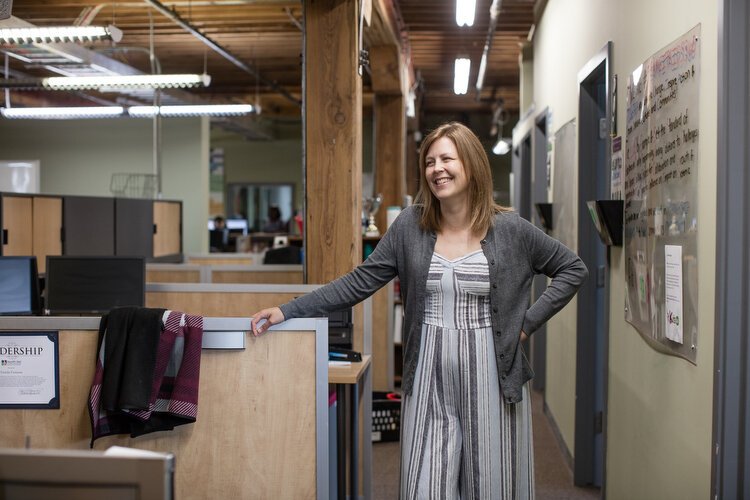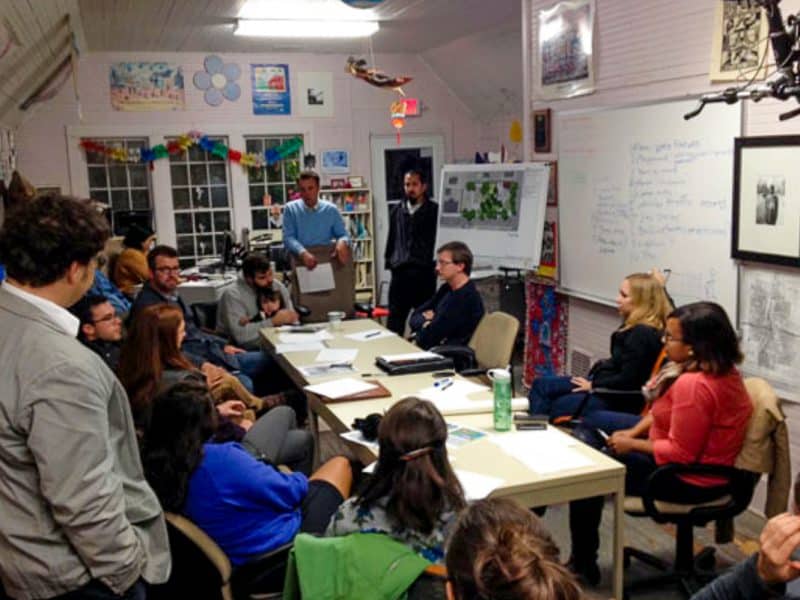Michigan’s home visiting programs bring support to new parents
A wide range of perinatal home visiting programs bring professional support to Michigan's new moms and moms-to-be, helping to fill the void of community support and develop vital skills.

This article is part of State of Health, a series examining integrated care and its potential to improve Michiganders’ health. It is made possible with funding from the Michigan Health Endowment Fund.
In times past, pregnant women and new mothers received abundant support from family and community, but today that tradition has faded. Western culture now expects moms to be showing off their newborns on social media within a week, and back to work within six weeks.
That doesn’t leave much opportunity for moms to form the deep bonds they need with their babies. But a wide range of perinatal home visiting programs bring professional support to Michigan’s new moms and moms-to-be, helping to fill the void of community support and develop vital skills.

“Those of us involved feel like this is a really positive way to achieve a lot of positive outcomes for families in Michigan,” says Tiffany Kostelec, manager of the Michigan Department of Health and Human Services (MDHHS) Home Visiting Unit. “A lot of evidence shows home visit programs work.”
World-renowned author and childbirth activist Suzanne Arms concurs.
“Home visit programs have been proven to turn minimally functioning or high-at-risk childbearing women — in terms of potential for neglect and abuse of their children — into high-functioning mothers,” she says. “… Every time we put a dollar into prevention and early healing, breaking cycles of dysfunction and violence, we see $7 to $100 saved, depending on what study you’re looking at.”
Home visitors help new mothers adjust to motherhood, ensure their homes and parenting practices are safe and healthy, and help them seek appropriate medical care. While often targeted towards income-challenged mothers, home visiting programs also address a number of other vulnerabilities among Michigan’s young families.

“If mothers are under a lot of stress and not well supported then that affects everything they feel about caring for that child and how they perceive that child,” Arms says. “And how they perceive that child directly relates to how the child perceives itself. The impact goes on and on and on.”
Pregnant women need information and support that relieves their fears, guides them in making healthy choices, and empowers them to give birth without stress. New mothers need a blanket of support that frees them and their partners to form deep attachments with their infants.
“We know that every new parent wants to be a good parent. Home visit programs give them tools and skills to do that. There’s no shame in asking for support and services so that you can be the best parent you can be,” says Amy Zaagman, executive director of the Michigan Council for Maternal and Child Health. “It isn’t a statement out of the gate that someone isn’t going to be a good parent but a recognition that some people may not have the means or natural support system that we might have expected 100 years ago.”
Kostelec notes that Michigan’s home visit programs comprise various, evidence-based models fine-tuned to the unique needs of the families served. Those with income challenges may need access to resources that help with housing, transportation, or childcare. Parents experiencing mental health issues benefit from home visitors who specialize in infant mental health and building healthy, bonds between baby and parents. Other families may need support when babies don’t reach developmental milestones like rolling over, crawling, walking, or talking on time.
While some programs focus more on medical concerns – for example, Nurse Family Partnership – others, like Baby Scholars, work towards school readiness. MDHHS’ Home Visiting Initiative funds perinatal home visiting services, where medical, social work, or infant education professionals do in-home visits with new moms before and after they give birth. Many home visit programs encourage breastfeeding and provide lactation consultants to help new mothers learn that very important art.
Participating in home visit programs is always voluntary. In Kent County, Health Net of West Michigan’s Welcome Home Baby program connects first-time parents with home visit programs. Focus groups revealed that the county’s families were not accessing home visit programs for two main reasons: they were either unaware of the programs or they were inundated with information from so many programs that they were too overwhelmed to respond.
“Parent choice is paramount. Some might want a home visit, some not,” says Christina Pavlak, Health Net client services director.

By combining new-parent screenings with an algorithm-based matching tool, Health Net can offer parents two or three program options that best meet their unique needs. Great Start Wayne offers similar help choosing programs in Wayne County. While home visit programs tend to reach out to Medicaid recipients, many programs have no income requirements.
“The majority of families are Medicaid-eligible, but we don’t necessarily restrict that,” Kostelec says. “We are trying to reach the families with the highest needs and connect them to the model that meets those needs.”

However, Zaagman notes that poverty is often a driver of poor health outcomes — and need for the extra support that home visit programs offer.
“People in poverty are less likely to have support and more likely to have far more stressors and social determinants such as lack of housing, transportation, or unemployment — or employers who are insensitive and unresponsive to new parents’ schedules and struggles,” she says. “There is also a correlation between unintended pregnancies and lower incomes. When you add an unintended pregnancy to a situation that’s already stretched, the stress increases exponentially.”
Families and practitioners are not alone in praising the virtues of Michigan’s home visit programs. Research has proven that home visit programs make positive impacts that extend beyond the baby’s first years to adulthood — and ultimately to the entire community.
“The research literature is very strong for home visiting programs,” Pavlak says. “If engaged in prenatally, they have been shown to have impacts for the baby’s mental health, social and emotional health, and improved school readiness. Long-term studies show that they reduced crime and unemployment.”
Arms agrees.
“If we want to create a peaceful society, communities that are capable of meeting adversity, children who are resilient, and families who are thriving, then we have to spend time in the first year after birth,” she says. “When you look around at our horrific rates of addiction, depression, anxiety, obesity, aggression, and suicide, it all goes back to this primal period of preconception to age one. These programs are critical.”
A freelance writer and editor, Estelle Slootmaker is happiest writing about social justice, wellness, and the arts. She is development news editor for Rapid Growth Media, communications manager for Our Kitchen Table, and chairs The Tree Amigos, City of Wyoming Tree Commission. Her finest accomplishment is her five amazing adult children. You can contact Estelle at Estelle.Slootmaker@gmail.com or www.constellations.biz.
Christina Pavlak photo by Adam Bird. Tiffany Kostelec photo by Roxanne Frith. Amy Zaagman and Suzanne Arms photos courtesy of the subjects.








